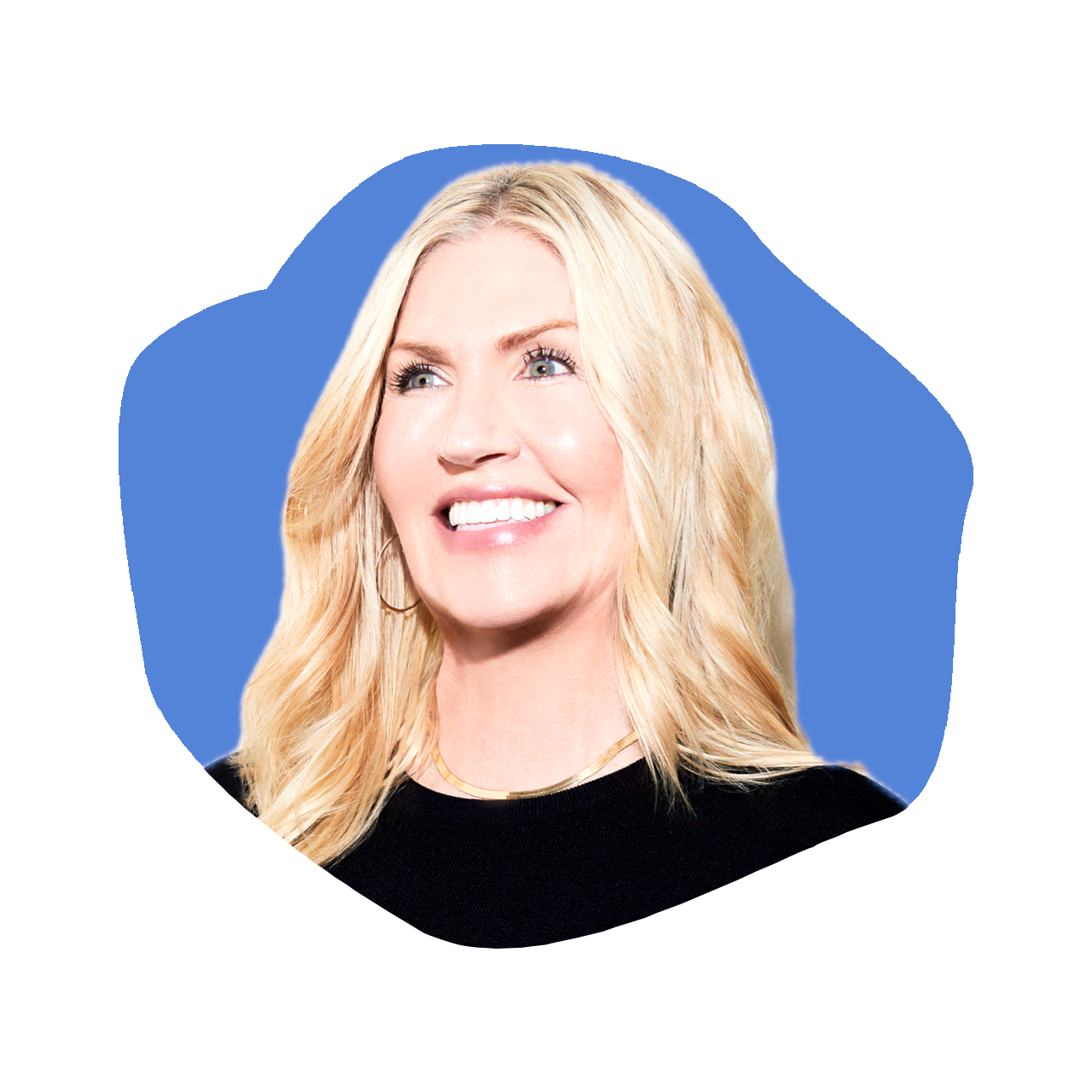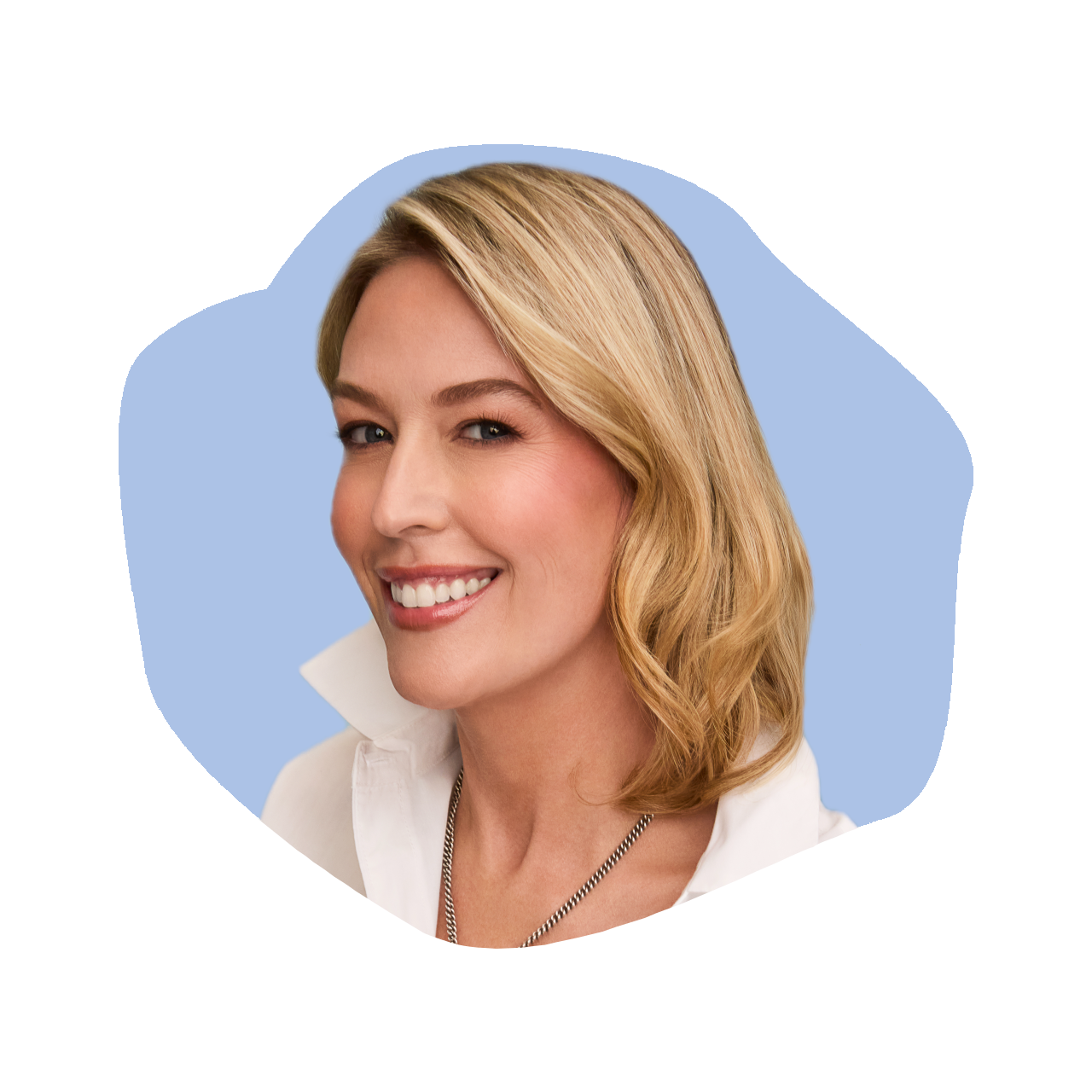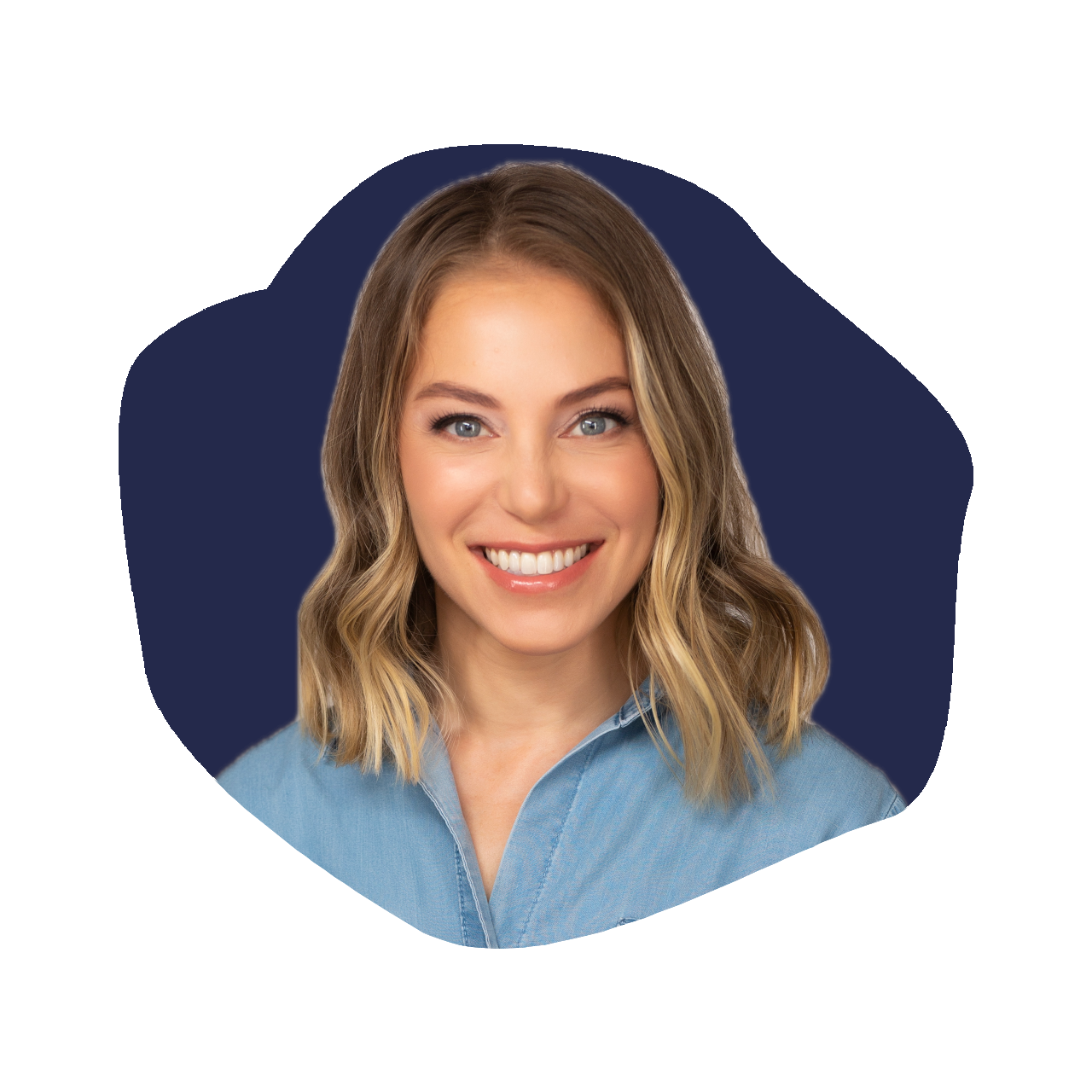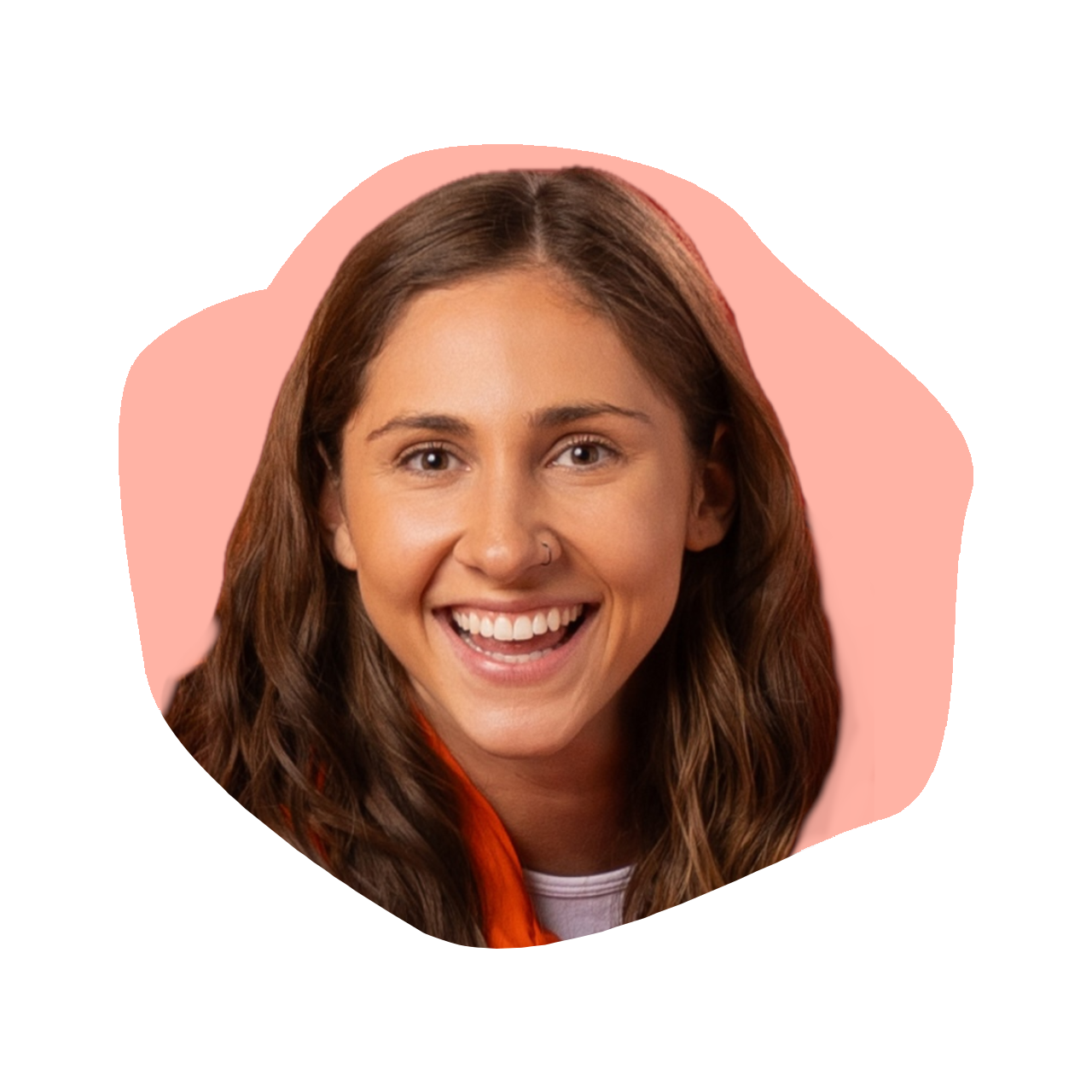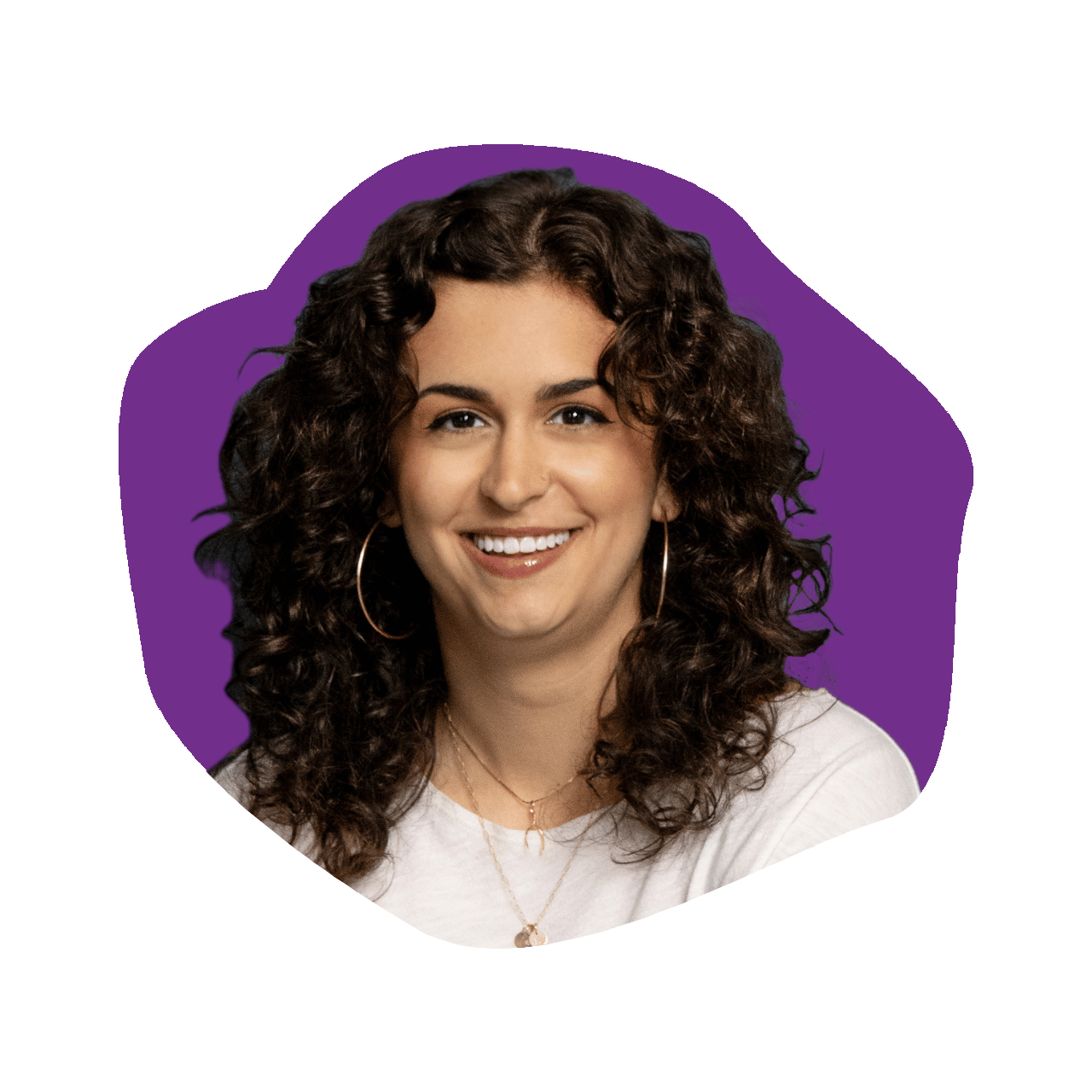Jana Goodbaum: Co-Founder & CEO of Happy Wolf
Episode 619

On this episode of The Kara Goldin Show, I’m joined by Jana Goodbaum, Co-Founder and CEO of Happy Wolf, a snack brand that’s reimagining healthy snacks for kids. Jana's journey began when, as a health-conscious mom and former fast-food marketer for Tim Hortons, she noticed a lack of school-safe, whole-food snack options for her children. Determined to find a better solution, she began crafting recipes in her own kitchen, leading to the creation of Happy Wolf: nut-free snack bars made with only whole ingredients you’d find at home, naturally sweetened with dates and honey.
We dive into Jana’s inspiring journey of building a brand from scratch, her dedication to providing genuinely clean, school-safe snacks, and the challenges and wins she’s faced along the way. Jana also shares insights into navigating the crowded food industry, growing Happy Wolf from 120 stores to an upcoming major retailer launch, and how she’s staying true to her mission in the face of rapid growth. If you’re interested in entrepreneurship, health-conscious living, or love a good story about following your passion, this is an episode you don’t want to miss!
Resources from
this episode:
Enjoying this episode of #TheKaraGoldinShow? Let Kara know by clicking on the links below and sending her a quick shout-out on social!
Follow Kara on LinkedIn – Instagram – X – Facebook – TikTok – YouTube – Threads
Have a question for Kara about one of our episodes? Reach out to Kara directly at [email protected]
To learn more about Jana Goodbaum and Happy Wolf:
https://happywolf.com/
https://www.instagram.com/happywolfsnacks/
https://www.linkedin.com/in/janagoodbaum/
Transcript
Kara Goldin 0:00
I am unwilling to give up that I will start over from scratch as many times as it takes to get where I want to be. I want to be you. Just want to make sure you will get knocked down. But just make sure you don’t get knocked out, knocked out. So your only choice should be go focus on what you can control. Control. Hi everyone, and welcome to the Kara Goldin show. Join me each week for inspiring conversations with some of the world’s greatest leaders. We’ll talk with founders, entrepreneurs, CEOs and really, some of the most interesting people of our time. Can’t wait to get started. Let’s go. Let’s go. Hi everyone, and welcome back to the Kara Goldin show. So, so pumped to have a rock star founder in the snack world who is with us here today. So Jana Goodbaum, who is the fearless co founder and CEO of an incredible brand called Happy Wolf, and she’s here with us here today to tell us the story and how it all got started. A total career 180 not 360 but I would call it a 180 a kitchen filled with mixing bowls and a mission to clean up the snack game, Jana went from marketing for fast food giant Tim Hortons to mom on a mission. And I absolutely love the story. Love how she saw a problem and decided to solve it. These bars are the real deal, made with whole foods and sweetened with dates and honey, no funny stuff. We’re about to dive in and hear a lot more about her journey from that kitchen hustle to the shelves and her wins and all of that. So welcome, Jana, how are you?
Jana Goodbaum 1:54
I’m great. Thank you for having me
Kara Goldin 1:57
absolutely so give us the elevator pitch, what is Happy Wolf and what makes it different from everything else on the shelf?
Jana Goodbaum 2:07
So we are a new line of delicious, nutritious snacks for kids, made with wildly simple ingredients, the exact same ingredients that you use in your own kitchen, if only you had the time and absolutely nothing else.
Kara Goldin 2:23
I love it, and you went from marketing in a fast food restaurant, I bet that was amazing, training on so many levels, but super clean to develop these super clean snacks, ultimately, for kids, what was the aha moment and kind of the back story behind developing Happy Wolf, sure,
Jana Goodbaum 2:43
so I’ll go, I’ll take you back. Um, I started my career in marketing. I did my MBA, and I was always on this sort of laser focused mission. I’m going to be the CMO of a big company, and I was really making it happen. I was on my way. I was leading marketing, communications, advertising at this giant, you know, quick serve restaurant company, and I had my dream job, and I learned a ton. I learned about storytelling and building brand love and market research, and I had, you know, the big team and the big budget. But on the other hand, you know, I’ve always been super health conscious, ingredient focused with what I’m, you know, putting in my body. And while I loved my job, I wasn’t necessarily aligned with all the ingredients in the products that I was actually selling. And then fast forward, I became a mom. I had my daughter in 2020 and that focus on health and wellness and ingredients just got dialed up when it came to her food, I became a little bit crazy. I won’t lie, I was making all of her food from scratch, and that was all well and good. But then I got pregnant with my son, I was back at work, working this high pressure job, and I found myself like exhausted at midnight, making energy balls and homemade granola bars for because I needed something that checked all my boxes was, you know, clean ingredient, and also school safe, nut free, so I could pack them to send her to her daycare. And I sort of got to the point where I acknowledged I really needed to go to the store and help my help myself out with some something more convenient. So I went to the grocery store. I started looking for snacks for her, and I was so shocked, like everything that was in a package and labeled for kids, especially the school safe stuff, was carbs and sugar, you know, primarily, which is like, okay, from time to time, but it was filled with all these ultra processed ingredients that I was never using at home. So I took all my skills from work, and I said, you know, let me put that market research hat on. And if I feel this way, probably other parents are having this same issue. And I went on maternity leave with my son, and I did hundreds of interviews with moms. Mostly moms, parents all across North America talking about their kids snacks. And when I finished maternity leave with him, I had had so many interviews, and I felt such a deep conviction that there were so many parents out there looking for sort of clean ingredient, Kid approved, school, safe snacks, and that there was this huge gap in the market that I naively was like, I can fill this gap. I can do this.
Kara Goldin 5:24
Why not? Right? And it’s, why not. Why not? How hard could it be, right? So that’s great, yes. And I
Jana Goodbaum 5:35
always say, if I knew how hard, if I knew how hard it was, I probably wouldn’t have done it, which is better that I didn’t know? Yeah,
Kara Goldin 5:42
absolutely. And that’s a common theme amongst the best entrepreneurs, for sure, launching a snack brand. I mean, you work for a fast food company, which is very different than getting it on the shelf of a local store. So while you did have some experience. I mean, this is super, super different for anybody who has not launched a product in store shelves. What were those early days like? I mean, obviously you were willing to be scrappy, you were willing to go and do the work. But how much did you feel like you didn’t know? And can you kind of paint the picture of of the hustle I could imagine. You didn’t have some huge team who was helping you put all this together.
Jana Goodbaum 6:31
No, we certainly did not have a huge team. But I do have a co founder, and those early days, first, I was alone with this idea, I knew exactly what kind of products I wanted to make. I could picture the brand, but I had no idea how to turn that into, you know, a commercialized sort of snack brand. So I recruited my good friend Derek to be my co founder, and it took a lot of convincing. He had experience building and scaling a pet food business. And so I had sort of seen him build this best in class food brand for a generation of pet parents. And I went to him and he said, Now I want you to do the same with me for us, like for human parents of kids. And it took a lot of convincing. You know, there was like six months where he was saying no, and then his son actually became a toddler, and he really saw the need in his own household, and that’s what convinced him to say yes and get started with me. And we literally started in my kitchen. We made hundreds of recipes until we found one that was, you know, met our criteria on ingredients, but was also picky kid approved, which is harder than it sounds, that every single parent out there knows. And what we learned, what the trickiest part of this R and D period, let’s call it, is that we quickly learned, in order for us not to have to compromise on ingredients, we had to keep our bars in the fridge, which was almost a turning back point. We almost said, Let’s not do this anymore. The fridge is so difficult. It adds all these roadblocks, all these expenses. But in the end, we realized the fridge was sort of the unlock that allowed us to solve this problem that I so strongly felt all of these parents had, and so again, we went ahead and we launched refrigerated snack bars for kids in September 2023, we officially, you know, launched, started selling.
Kara Goldin 8:33
That’s awesome. How did you pick your co founder? By the way?
Jana Goodbaum 8:36
Well, you know, it’s funny again. I think I, knew how important it was. But, you know, we’ve basically, we always joke like, it’s like another marriage, it’s a second marriage. And so it’s even more important than I realized when we did pick each other, and it is, you know, luckily, so wonderful. We picked each other because we have the opposite skill sets. You know, in life, in everything that we do. So I’m very creative. I’m very good at selling and talking to people, and I’m sort of like the front facing person in this brand. And he is behind the scenes. He’s up. He has a finance background originally, and then entrepreneurial. He’s supply chain, operations, finance, logistics, all of the stuff that you know I could do, I could do, but I didn’t really want to be spending my it’s not what energizes me. And so that’s how I knew it was the right choice.
Kara Goldin 9:36
Yeah, definitely. I think having a co founder, I would say I used to see that a lot of people would pick a co founder that, you know, was somebody they knew from business school, or, you know, somebody they used to work with. And more and more, I’m seeing that maybe they went to business school with you, or used to work with you, but you. It really seems like the skill sets people get it and it’s and it’s to your point. It’s not that you can’t do it. It’s that, what do you what do you choose to do because you can’t do everything?
Jana Goodbaum 10:13
Oh, yeah. And I also think there’s something that’s maybe not talked about as much, is like the accountability and also just having somebody with you in the trenches, I think I might have quit the you know, earlier on, at many points, without having a partner here to just say, like, let’s go. Let’s keep going. Get up another day. Let’s do it. And I think that that’s a huge part of it, just sitting next to someone while you’re building
Kara Goldin 10:46
definitely. Where are you based, by the way,
Jana Goodbaum 10:49
so interestingly, we’re based in Toronto, in Canada, but our product is primarily sold in the US, which is not something we were anticipating when we start, got
Kara Goldin 11:01
it so the biggest throw in the towel moment you touched on this was the you know, you you demanded that the ingredients were, were, you know, real, and you didn’t want to use preservatives, it sounds like, and what kind of kept you pushing forward? And I mean, what was sort of that aha moment, I guess again, where you just thought, you know what, like this is okay, we can do it. You know, we have our own story like that, with hint, where I really wanted to create a product that didn’t have preservatives in it, and I was willing to have a shorter shelf life until I could figure it out. And we did figure it out and and actually, that’s a longer story of looking outside of the industry and kind of seeing what some other industries were doing, and seeing if we could apply those principles, not necessarily the exact same situation, but in the beginning, I mean, we had a refrigerated product, and we sort of knew that we weren’t going to be able to scale it in the beverage industry. It was just going to be too expensive to do, really, the delivery, more than anything, to have to have that. But it was definitely like, I kept saying to myself, this is okay right now, but we’re gonna figure out a way to make this so that it is shelf stable without the ingredients that I don’t want. What was your moment? There’s
Jana Goodbaum 12:32
all of this research out there, and it’s very convincing about the long term impacts of these ultra processed foods and these additives and gums and preservatives and all the ingredients that we would have had to add to our product if it was going to be shelf stable. And you know, I’m really no dietitian or doctor or scientist. I can’t claim that I’m an expert on this research. I’m just a mom, but in my own household, I have two kids now, and I see the impact on my own kids when they eat whole foods versus packaged junk food. And I knew I had a product that made them feel great, that kept them full throughout the day, that kept them happy healthy. I knew that this product could help so many of those parents that I had spoken to on the phone two years earlier. And so I went ahead and did it, despite knowing that, yeah, it was going to be harder at every step of the way. And it’s funny that you mentioned, you know, knowing that you may find a way to make it shelf stable. We’re all we’re still looking for ways to make this product, you know, to keep the ingredient integrity and to make it shelf stable. Because no parent is buying this because it’s refrigerated. They’re almost buying it despite the fact that it’s refrigerated. And so if we can make it even more convenient for our customers, while keeping the ingredients even better for us,
Kara Goldin 14:03
definitely. So we have a lot of colleges and universities throughout the world who listen to this podcast, and I always like to give kind of mentorship advice to people, especially around their careers. But how do you think your experience going with like a Tim Hortons? Obviously, it wasn’t necessarily what you were eating or certainly not on a daily basis, but how did that kind of help you to develop i i feel like, you know, oftentimes training programs or established brands, even if it isn’t necessarily the product or the service that you want to stick with forever. I think that the training is is usually pretty valuable.
Jana Goodbaum 14:52
Absolutely, I wouldn’t, I wouldn’t change my sort of path to get here for anything and. Like I said, in many ways, you know, I loved everything about my job. And so for me, I think being part of like this larger organization and getting to see how a giant company operates is extremely valuable. I mean, now I play so many of the roles that you know of the teams that I used to work with, but understanding how all of that can work and scale and grow and work together is so helpful. I learned to manage a team, manage agencies and other stakeholders, which now you know again, I’m doing it. I’m doing it in an indirect way with all of my partners, but is it the same skills? And then, you know, I do all of the marketing for this little business, and I learned by doing for Tim Hortons. I learned how to tell stories. I learned how to build, you know, customer relationships and brand love. And now I’m just taking all of that, and I’m doing it, but without resources and without a budget. But I was trained by sort of the best in the business, so I would, I would never trade it.
Kara Goldin 16:10
How were you able to actually launch in terms of being able to afford it? Did you self fund it initially? Did you, you know, is there a scrappy story behind it that you were able to use savings, credit cards, things like that, in order to be able to get your first batch done? So
Jana Goodbaum 16:32
we were very fortunate, and my co founder, because he had already built, this is his second business. He had some of his sort of partners and investors who had said, what you’re doing, what you do next, we want to do it with we want to help you. We want to fund it. And so that was back in 2022 I think what’s happened since then is the industry has really changed. And so the money that we raised then, that we maybe thought we would use for, you know, a year or a little bit of time, we realized that that was going to have to last us a whole lot longer, once the industry sort of completely transformed before our eyes. And so yes, we are being as scrappy as and as sort of budget conscious as we can be in an industry that is so expensive, so much more expensive than I ever dreamed. And I think what that funding allowed us to do earlier is higher. So we each hired sort of a right hand earlier than I think we would have. We both have. I have two young kids. My co founder has two young kids, and we both sort of looked at each other and said, you know, 10 years ago and 10 years from now, we could work 24 hours a day to build this business, and we would want to work 24 hours like all the time to build this business, but in this exact moment in life where I have a four and a half year old and a two year two and a half year old, and he has similar kids ages, and we both just said, like, we don’t want to miss this either in our in our households. And we want to, you know, have phone free computer free time between 5pm and bedtime right now for this next few years. And so we used, some of that money that we raised to hire so that we could delegate and share that responsibility and really not miss these years at home either.
Kara Goldin 18:30
First of all, how many SKUs did you actually launch with too?
Jana Goodbaum 18:33
So we launched with four SKUs, and we we knew, we always dreamed that this was going to be a grocery like a retail business. We said, you know, nobody wants to buy their kids snack bars online separately from the rest of their groceries. That was very obvious, but we went and we actually met with some of the big grocery stores before we even launched. We were really lucky. We got meetings like with big, big, all of the giant companies. They brought us in, we got to pitch to them with our silver wrapper, you know, prototypes and our PowerPoint presentations, and all of them said to us, okay, like we love what you’re doing. This is the future. This is what parents are looking for. But you have no sales data. You have no so you’re not proven. You have to prove the demand to us. And so we sort of said, okay, we can go into like one grocery store at a time, but I don’t think that will be enough for these bigger retailers for a really long time. Or we can find a way to make social media and D to C sort of work for us and responsibly, so that it can help us make this more accessible to parents where they want to shop, which is grocery stores. So we basically launched on Instagram. Am and put up our D to C website, and we started sending our bars to influencers, and not just any old influencers who happen to have a lot of followers. We really built relationships over the months we were building the products with a handful of targeted influencers who cared so deeply about ingredients and kids health, and we formed those relationships, but all of them had told us, okay, well, I can’t post about you unless you’re accessible to my followers, unless you’re accessible nationwide. So we turned that DTC on, we started shipping to influencers, and they started posting about us, which gave us sort of exposure right out of the gate. And it started bringing in these online orders that we weren’t paying, you know, customer acquisition for. We weren’t paying for them. We were charging for shipping. We were doing all the things that nobody else does on DTC, and we really just tried to get customer reviews as many as we could, as quickly as we could. And so we incentivized reviews. We said we’ll give you like 25% off your second order if you leave us a review. And so we got hundreds of reviews within I think it was about six weeks, we had like 250 reviews, and we were like, okay, we can, we can, we can dial it down now. And we used that to prove demand, as well as, like a growing social following to a handful of our dream retailers. And we ended up getting into Wegmans when we were three months out of the gate, which is pretty crazy, and it sort of let us fake it till we make it to get where we wanted to. That’s
Kara Goldin 21:44
awesome. And so that was your first store or chain, I should say, yeah, that’s that’s incredible. So what is your your kind of runaway bestseller? If you have one in the in the bars. And was that a surprise for you, that one in particular, sort of surfaced as one of the top ones?
Jana Goodbaum 22:09
It was a huge surprise. So our top seller is chocolate chip but it’s not just any old chocolate chip bar. It is a date Sweden chocolate chip bar. And I always wanted to launch with chocolate chips without refined sugar. And of course, we couldn’t find we couldn’t find chocolate chips that met our criteria. I don’t know for your listeners, if everybody realizes, but mostly, if you’re a CPG brand and you want to buy chocolate chips, you go to a bunch of ingredient suppliers and you buy chocolate chips, and you get them, you purchase them, and then you use them. We ended up going the path of making our own date Sweden to chocolate chips, because I couldn’t find any chocolate chips on the market that sort of, again, checked my ingredient boxes, and so I was calling ingredient suppliers all over the world using Google Translate, like speaking in Italian, to try to reach a chocolate manufacturer in Italy and in South America to find these, to find someone who would make me these chocolate chips that are just cacao and dates and, you Know, our allergen free that meet all of our many, many criteria. And we finally found one partner in the world who would do it for us. And so we almost built a second business, like creating this chocolate chips that goes in our chocolate chip bar, and it is our best seller by far. We sell, you know, double the amount of chocolate chip bars than all of our other SKUs, and it’s because, for parents who are super ingredient conscious, we’re really giving them this like sweet treat that they can give their kids that doesn’t use any refined sugar at all.
Kara Goldin 23:55
I love it. So parents care so much about what their kids eat. Obviously, that sort of was your inspiration and developing your all of the products at Happy Wolf. But do you what trends do you see, maybe that are a little bit different, if any, since you actually started that kind of has you thinking, Well, you know, this is, this is coming down the wrap, the coming down the line for Healthy Kids, snacks overall.
Jana Goodbaum 24:26
I mean, the protein trend that we’re seeing for adults. We’ve talked to so many dietitians and nutritionists, I think, you know, it’s almost unnecessary for kids to be like, overloading on protein. But parents are starting to ask about it, because they’re so conscious about their own protein intake. So that’s something interesting that we may, you know, respond to over time. We aren’t. We have a good amount of protein from, you know, pure organic sunflower seed butter and pumpkin. Better, but we’re not like pouring in protein powder like other adult brands are. I think what we are seeing and what is a trend that we maybe were a little bit early, early on, but are now starting to see it come. You know, the way we thought it would, is this idea of fresh snacking, and so when we launched, you know, there’s a refrigerated baby food brand out there that’s doing amazing, incredible, inspiring product development, and there’s not much else in the fridge for kids right now that it’s labeled for kids. And now we recently saw Wegman sort of put up a sign above the section that we’re in, as well as once upon a farm, this other brand and a few more are coming in, and it says fresh snacking kids in this huge sign above our refrigerator. And so we almost feel like this is a new category that we’re just at the we’re just seeing emerge
Kara Goldin 26:03
interesting. So you’re growing happy family into a brand that really resonates, not just with parents, but I think, just with people who want better for you food. Because secretly, I’m I’ve really been enjoying your bars and and I’m not four years old, so I can, I can attest to that. But how important is it to sort of build this community? And I think also, actually, I think there’s two questions. One is, you talked about the influencers, obviously you, you know, it’s a good way to sort of get out of the gate, but then you really got to build the community, and, you know, to get repeat and get your velocity up, all of those things in order to be successful. So how do you do that? And also, I’ve seen you’ve you’re just really transparent about the ups and downs of the journey the founder story. How important do you think that is to this audience and sort of learning? And again, I think there’s a craft of not complaining about it, but it’s also being very real, and I think that’s so, so important. And kudos to you for for doing what you’ve done, but if you could just talk about that
Jana Goodbaum 27:24
totally So, like I said, I came from this marketing background. I’ve been in marketing my whole career, you know, making commercials, telling stories, running social media. But you know, when I started Happy Wolf, I was like, What do I have at my disposal? Like, what are the resources that I have to build this brand. And I realized like I was, I had me. And, you know, I almost felt like in 2022 at the time, I had no choice but to put myself out there, build transparently and sort of make this a very personal brand. It also really differentiated us from the other kids snack companies that you could choose from when you were going to, you know, a Wegman. And now we’re going into Whole Foods. When you can go into Whole Foods, you know, they don’t have a picture of their founder on the back of the box. They don’t have an Instagram, you know, that has a mom telling their story about why they’re doing this, how hard it is to do this, but that they’re doing it for you and for your kids too. And so I think we really learned quickly how important it was to have that face associated with the brand, to build the relationship, to build the trust. And, you know, I love I think people really appreciate, like, the imperfection, the fact that it is like a real mom, just like them, behind this brand and behind our social media account. I just told this story yesterday, but, like, I put up a picture accidentally of my a selfie my four year old took. It ended up on our website, on a product page. It was so unprofessional. I had no idea how long it had been there. I was like, cringing, feeling just so bad about myself, and I told our followers about it, and you know, their reaction was, like, so supportive. Everybody was sharing mistakes that they had made that day or that week, and, like, embarrassing things that they had done. It ended up getting a million views that video, and it just shows you, you know, that was just me sitting here, no money was spent two minutes of time, and I put that video up, and that got happy with so much exposure. So I think for all of those people out there who are thinking about starting a brand today, first of all, almost not a choice anymore, whether you want to put yourself out there or not in the social media age, I think it’s becoming more and more important. But just do it. Just get over it. Don’t worry about what people say. Most people are cheering you on.
Kara Goldin 29:53
Definitely. Well, I think that is awesome wisdom to wrap this up, Jana, so thank you. So. Much for joining us on the show today, and we’ll have all of the information in the show notes about Happy Wolf. Definitely look for it in stores. They’re killing it, getting into more and more across the US, and definitely worth trying and buying over and over again, and definitely supporting Jana as well, so she’s doing a great job. So thank you again. Thanks everyone for listening.
Jana Goodbaum 30:29
Thank you,
Kara Goldin 30:30
thanks again for listening to the Kara Goldin show. If you would please give us a review and feel free to share this podcast with others who would benefit. And of course, feel free to subscribe so you don’t miss a single episode of our podcast, just a reminder that I can be found on all platforms. At Kara Goldin, I would love to hear from you too. So feel free to DM me, and if you want to hear more about my journey, I hope you will have a listen or pick up a copy of my Wall Street Journal, best selling book undaunted, where I share more about my journey, including founding and building. Hint, we are here every Monday, Wednesday and Friday. Thanks for listening, and goodbye for now. You.





